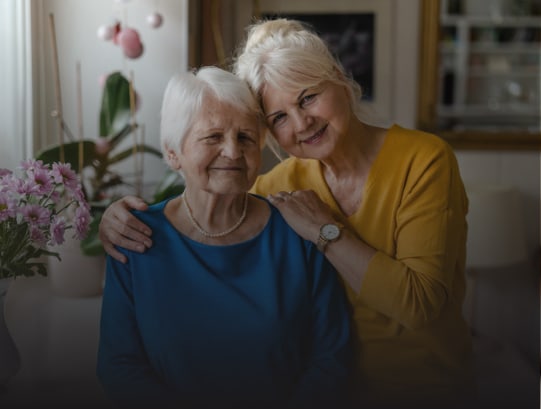With millions affected by dementia, it’s more important than ever to find ways to connect and communicate with those living with this condition. Engaging in meaningful conversations can be a powerful tool for enhancing the lives of individuals with dementia. Some of the best questions for people with dementia include:
- What is your favorite memory with your family?
- What did you enjoy most about your job?
- What hobbies did you enjoy most growing up?
- What is a treasured memory from your childhood?
These and a few more we’ll explore below can provide ways of connecting with your loved one.
Simply knowing which questions to ask may not always be enough because each individual with dementia has a unique personality. So, we also cover a few tips for adapting questions for different seniors, environments, and situations. Your loved one’s professional memory care caregivers can also often provide insight on the best questions to ask.
Understanding Dementia
Dementia is not a single disease but a general term for a broad range of conditions that affect memory, thinking, and communication. Alzheimer’s disease is the most well-known and common form of dementia, but there are many others, including vascular dementia and Lewy body dementia.
Symptoms of dementia vary, but they often include memory loss, confusion, difficulty with language, and mood changes. These symptoms can progress through different stages, from mild cognitive impairment to severe loss of function, impacting daily life and relationships. Understanding the various stages of dementia helps caregivers tailor their approach.
Importance of Asking the Right Questions
When interacting with someone who has dementia, it’s crucial to ask open-ended questions that invite conversation. These types of questions can prompt reminiscing, allowing individuals to reflect on past experiences and emotions. By focusing on their interests, hobbies, and personal history, caregivers can create an environment where individuals feel valued and heard.
In addition to fostering connection, asking the right questions can help reinforce cognitive abilities. Engaging in conversation exercises the brain, which can contribute to maintaining cognitive function. This makes communication an integral part of dementia care, benefiting both the individual and their loved ones.
Great Questions to Ask Someone with Dementia
Creating a list of questions that cater to an individual’s unique experiences and preferences can make conversations more engaging and meaningful.
Family
Family-focused questions allow individuals to recall cherished moments with loved ones, reinforcing their sense of belonging and identity.
- What is your favorite memory with your family?
- Can you tell me about a special holiday celebration you remember?
- Who was the most influential person in your life, and why?
Career
Discussing career experiences can evoke a sense of accomplishment and pride, and it allows individuals to share their achievements and expertise.
- What did you enjoy most about your job?
- What was the most significant project you worked on?
- Can you share a memorable experience from your workplace?
Hobbies
Questions about hobbies encourage individuals to explore their interests and passions, fostering creativity and engagement.
- What hobbies did you enjoy most growing up?
- Can you describe a favorite hobby or interest you have now?
- What is something new you’d like to try or learn?
Personal Experiences
Personal experience questions provide insight into an individual’s unique history, promoting self-expression and storytelling.
- What is a treasured memory from your childhood?
- Describe a place you’ve visited that left a lasting impression on you.
- Is there a particular tradition you have carried on over the years?
How to Adapt Questions
Adapting questions based on an individual’s stage of dementia and cognitive abilities is essential. Here are some tips for tailoring your approach:
- Simplify language: Use clear and straightforward language, avoiding complex sentences. This helps prevent confusion and makes engaging in conversation more manageable for the individual.
- Be patient and allow time: Give individuals time to process questions and respond at their own pace. Avoid rushing or interrupting, as this can hinder their ability to express themselves.
- Use visual cues: Incorporate photos, objects, or gestures to support verbal communication. Visual cues can provide context and trigger memories, enhancing the conversation.
By adapting questions to suit the individual’s needs, caregivers can create a comfortable and supportive environment that encourages meaningful interactions.
Good Communication Doesn’t Stop at Home
Communication is a powerful tool for fostering connection and preserving identity. By asking thoughtful questions, we can create spaces where individuals feel valued, heard, and understood. These conversations have the power to evoke cherished memories, strengthen relationships, and improve overall well-being.
As caregivers, family members, and friends, our role is to continue learning and adapting our communication strategies to meet the unique needs of those living with dementia. The need for healthy communication doesn’t stop when a senior with dementia transitions into a memory care community. So, it’s important to consider how the community approaches communication when choosing a senior community.
Call us today at Fleming Farms Senior Living to book a community tour. We’d love to show you how our experienced and compassionate caregivers can continue fostering good communication lines with your loved one.









